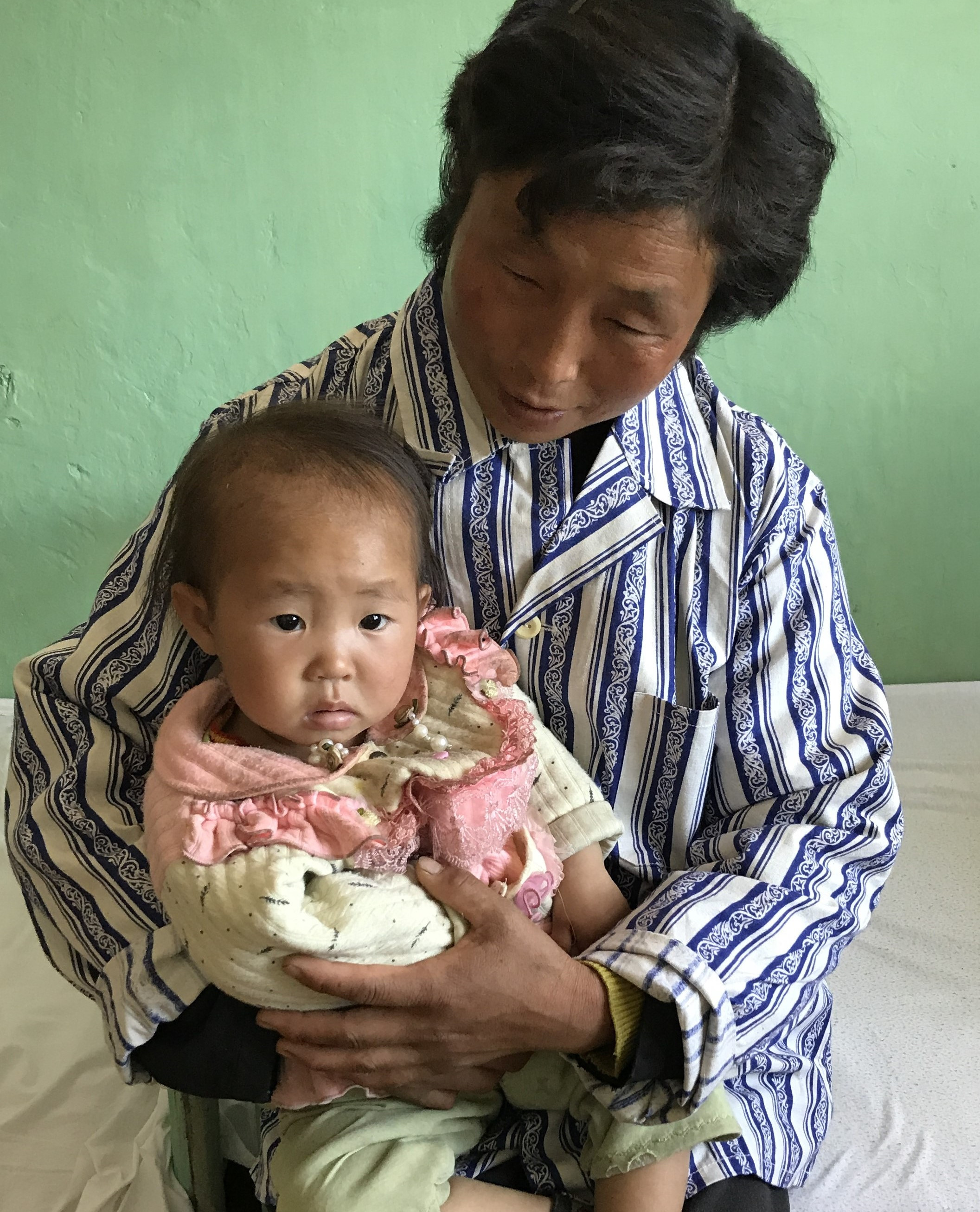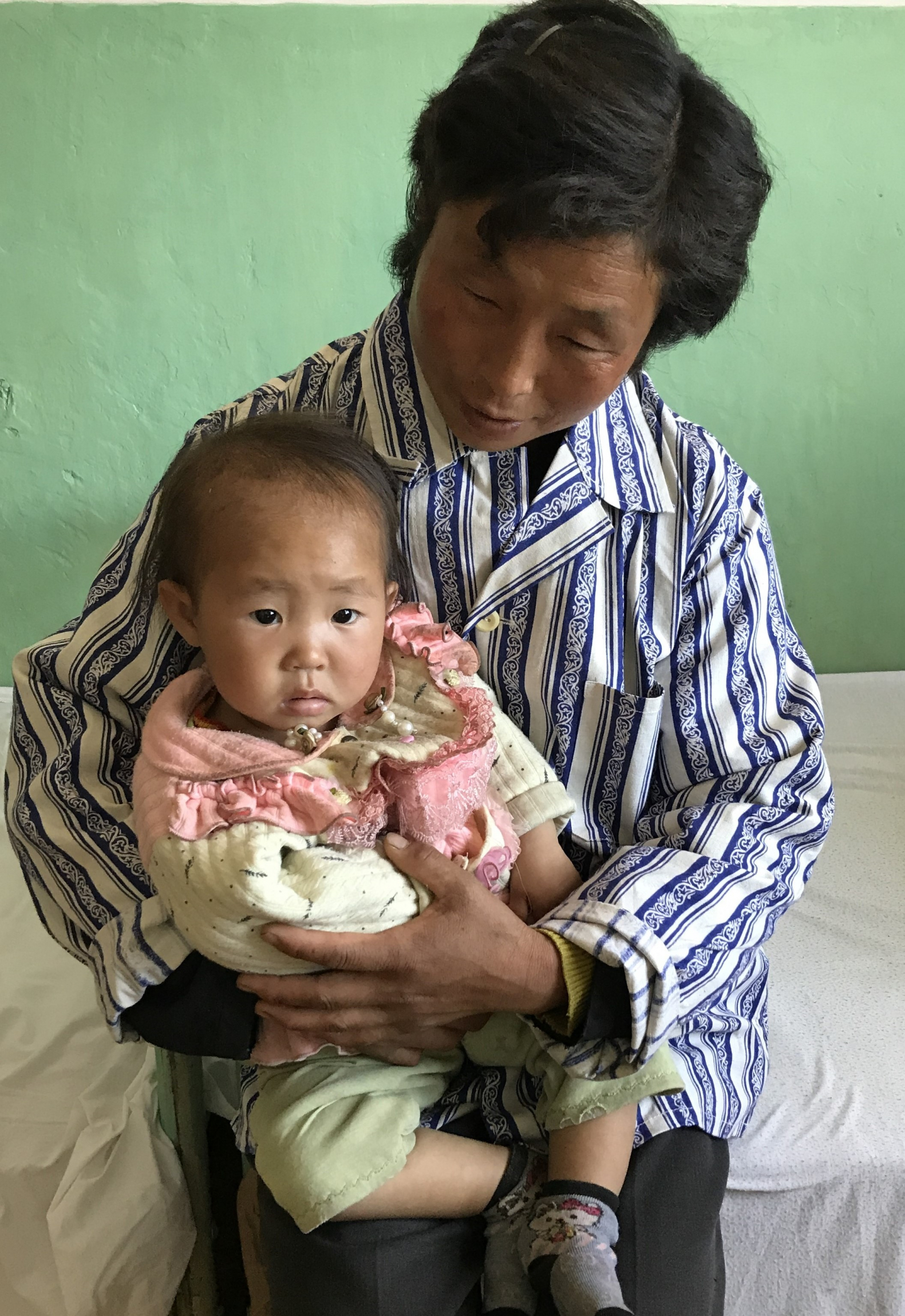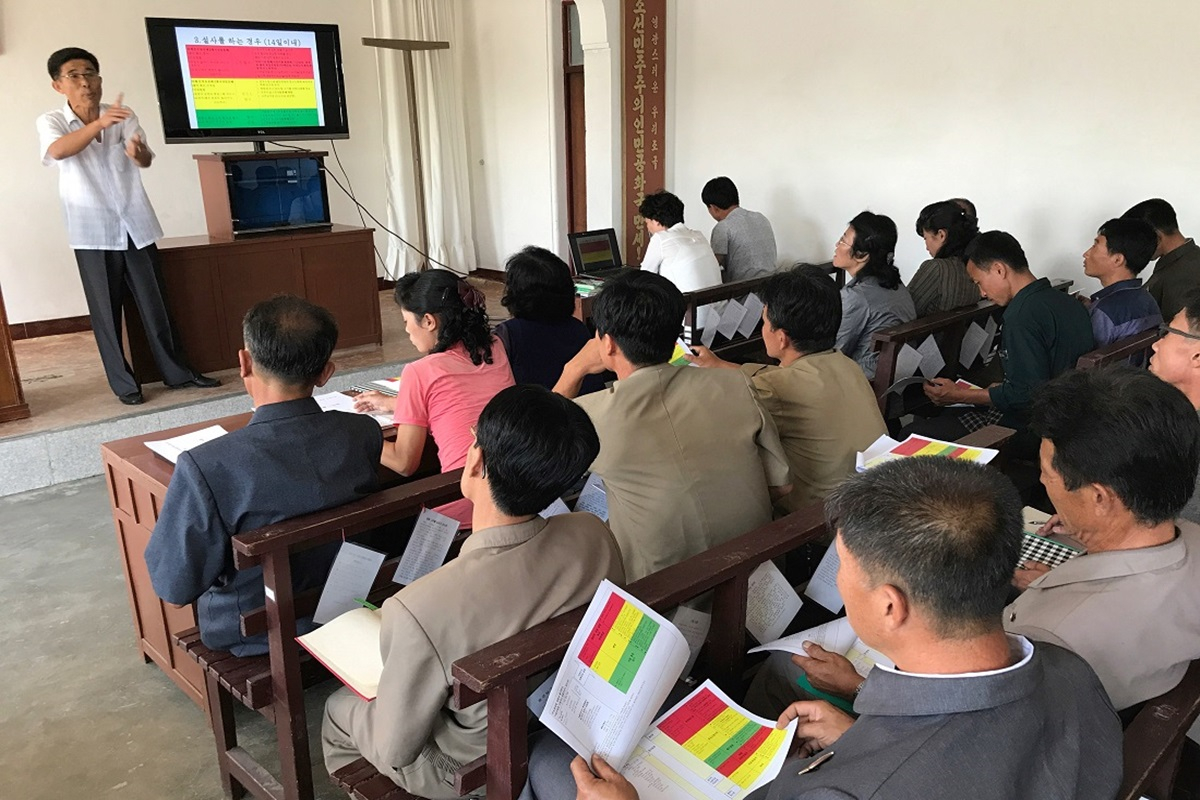Learning to save more lives in DPR Korea
2017-12-15
© UNICEF/2017/Rahimov
Dr. Ri conducting his first training for household doctors in Jongju county.

©UNICEF/2017/Rahimov
Ri Haing Pok, 2 years, and her mother benefitting from better treatment through improved IMNCI.
At 6:30 every morning, Dr. Ri Song Hwan walks to the county hospital in Jongju City, DPR Korea, where he has worked for many years as a paediatrician. As he walks, many people greet him – he remembers each young patient and each member of his community by name. There is no limit to Dr. Ri’s work hours: a mother who has a sick child can approach him at any time of day or night. Patients can visit him at his home as well as the hospital and his doors are always open. This is the life of a rural doctor in DPR Korea.
Dr. Ri recently added another responsibility to his practice: master trainer in Integrated Management of Newborn and Child Illnesses (IMNCI) in the county he serves. The IMNCI 2017 Protocol is a joint product of the Ministry of Public Health in DPR Korea, WHO, UNICEF and UNFPA that guides doctors in how to treat common illnesses in babies and children. It was developed using GAVI HSS2 funding, which also supports the rollout of IMNCI training. Dr. Ri joined a group of selected county doctors from nine of UNICEF-supported pilot counties and successfully completed the Training of Trainers course in IMNCI in Pyongyang.
The updated IMNCI protocol for DPR Korea has a strengthened focus on fever management and the top childhood killer diseases diarrhoea and pneumonia. Several additional modules offer gains in the efficient diagnosis and treatment of these dangerous illnesses using the revised Essential Medical Kit 2017 for DPR Korea.
Dr. Ri is very happy with the new knowledge he acquired: “Last week I treated a child with bad pneumonia in only five days, using the recommended treatment. Before, we sometimes spent more than three weeks to cure children with the same condition. I am so happy to be able to disseminate this knowledge to other doctors”.











